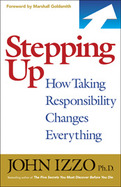BK Blog Post
Five Things You Won't Believe Are Not True
 Posted by
Jeevan Sivasubramaniam,
Vice President, Editorial,
Berrett-Koehler Publishers Inc.
Posted by
Jeevan Sivasubramaniam,
Vice President, Editorial,
Berrett-Koehler Publishers Inc.
In his latest book, Hyrum Smith explores three serious gaps in our lives between what we think is real and what actually is real. One of the most fascinating of these is the gap between that which we believe is true and what actually is true.
Here are five things you always assumed were true, but aren't:
1. Sugar makes children hyper: You always hear about the sugar rush that all parents fear--that thing where a heavy infusion of candy or other sweets provokes an almost caffeine-like reaction in children making them louder, more boisterous, and generally manic. You may even think you've seen this happen in person, but science says that's just not true.
2. During ancient times, people only lived into their 30s. Everyone assumes that until recently, our ancestors lived incredibly short lives (which then gave birth to rationalizations as to why people got married in their early teens and so on), but that just isn't true. People actually lived almost as long as we do today.
3. Mother-birds will reject young babies that have been held by humans. It's a common warning given to children: if you see a baby bird that has fallen out of its nest, don't pick it up. If the mother smells you on her child, she will reject it. This supposed truth is totally without merit.
4. Certain parts of your tongue detect certain flavors. Some of us were even taught this early on in elementary school about how various parts of the tongue detect particular flavors (sweet is at the tip of the tongue whereas sour is on the side and so on). Well, this teaching is wrong. Any part of the tongue is capable of detecting any flavor.
5. Napoleon was short. This is one of the most common historical myths and has even resulted in a pseudo-psychological affliction called "The Napoleon Complex" which is used to describe short men with a need to dominate or have all attention directed towards themselves. Napoleon, however, was of perfectly average (slightly above, even) height for his time.






